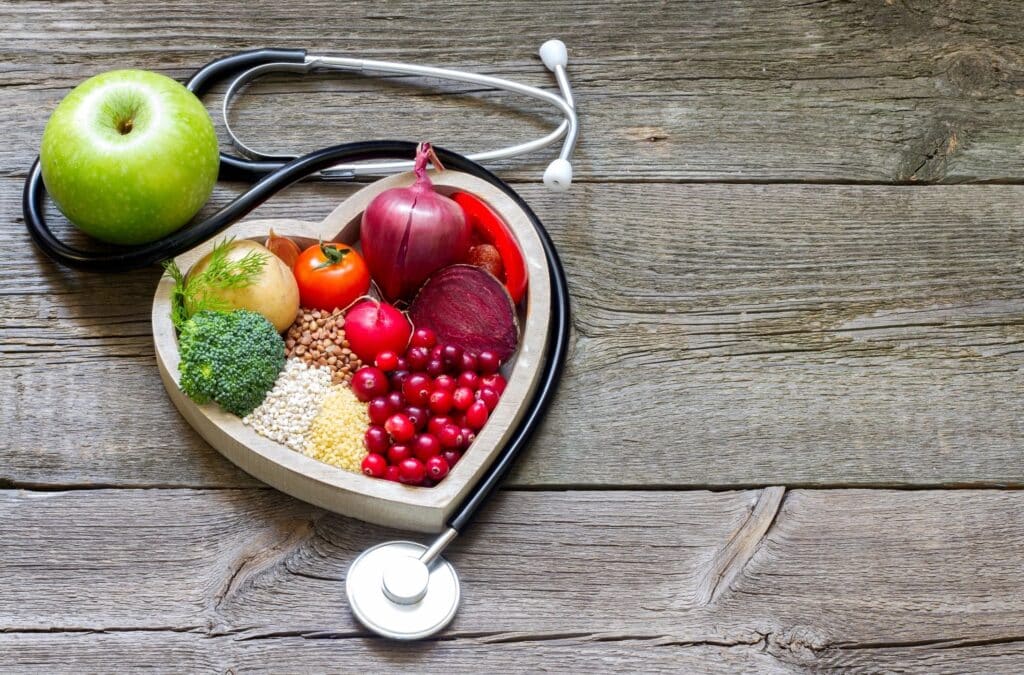Chronic Inflammatory Response Syndrome (CIRS) is a complex condition that involves a persistent inflammatory response to environmental toxins like mold, mycotoxins, and biotoxins. This ongoing inflammation can affect multiple systems in the body, leading to symptoms like brain fog, fatigue, respiratory issues, digestive disturbances, and more. While addressing the root cause of CIRS—such as removing mold exposure—is essential, nutrition, mainly anti-inflammatory foods also plays a critical role in managing inflammation and supporting the body’s healing process.
Certain foods possess natural anti-inflammatory properties that can help reduce the body’s chronic inflammatory response and promote overall health. In this blog post, we’ll explore the best anti-inflammatory foods for CIRS and how incorporating these into your diet can help alleviate symptoms and support recovery.

Why Focus on Anti-Inflammatory Foods for CIRS?
The underlying issue with CIRS is that the body’s immune system remains in a constant state of overactivity due to biotoxin exposure. This leads to chronic inflammation, which can be damaging over time and affect virtually every part of the body. The goal of anti-inflammatory foods is to help counteract this inflammation and support the body’s detoxification processes.
Anti-inflammatory foods help:
- Reduce oxidative stress: Chronic inflammation leads to oxidative stress, which can further damage cells and tissues. Anti-inflammatory foods are rich in antioxidants, which help combat this.
- Balance immune function: Some foods have immune-modulating effects, helping to support a balanced immune system response.
- Support detoxification: Many anti-inflammatory foods promote liver function and toxin elimination, which is essential for those dealing with CIRS.
By choosing the right foods, you can complement medical treatments for CIRS and potentially experience relief from some of the condition’s most frustrating symptoms.
Top Anti-Inflammatory Foods for CIRS
- Fatty Fish (Rich in Omega-3 Fatty Acids)
Omega-3 fatty acids are well-known for their ability to reduce inflammation in the body. These essential fats help to inhibit the production of pro-inflammatory compounds and support overall immune system function. Fatty fish, such as:
- Salmon
- Mackerel
- Sardines
- Anchovies
These fish are rich in EPA and DHA (two key omega-3 fatty acids) and are excellent additions to a CIRS-friendly diet. Aim to include fatty fish in your diet at least 2-3 times per week to harness their anti-inflammatory benefits.
- Leafy Greens and Cruciferous Vegetables
Vegetables like kale, spinach, broccoli, cauliflower, and Brussels sprouts are packed with antioxidants, fiber, and vitamins that help combat inflammation. They are also rich in phytonutrients like sulforaphane, which have been shown to reduce the production of inflammatory cytokines.
These vegetables are also high in vitamin C, which plays a crucial role in reducing oxidative stress and supporting immune health. Adding a variety of leafy greens and cruciferous vegetables to your meals can provide a powerful anti-inflammatory boost.
- Turmeric (Curcumin)
Turmeric contains a potent compound called curcumin, which has been extensively studied for its anti-inflammatory and antioxidant properties. Curcumin has the ability to inhibit various inflammatory pathways and is known to reduce inflammation throughout the body.
To make the most of curcumin’s benefits, pair turmeric with black pepper (which contains piperine, a compound that enhances curcumin absorption) and a healthy fat like olive oil, as curcumin is fat-soluble. You can incorporate turmeric into smoothies, teas, curries, or even use it in homemade salad dressings.
- Berries (Rich in Antioxidants)
Berries such as blueberries, strawberries, blackberries, and raspberries are among the best sources of antioxidants, especially flavonoids and anthocyanins, which have powerful anti-inflammatory effects. These compounds help neutralize free radicals, reduce oxidative stress, and protect cells from damage.
Including a variety of fresh or frozen berries in your diet can provide a sweet, anti-inflammatory boost. Add them to smoothies, yogurt, oatmeal, or enjoy them as a snack.
- Olive Oil (Rich in Polyphenols)
Extra virgin olive oil is a cornerstone of the Mediterranean diet, and for good reason—it’s packed with polyphenols and healthy monounsaturated fats that have potent anti-inflammatory effects. One of the key compounds in olive oil, oleocanthal, has been shown to work similarly to nonsteroidal anti-inflammatory drugs (NSAIDs) by blocking inflammatory pathways in the body.
Use extra virgin olive oil in salad dressings, cooking, or as a finishing oil for vegetables and whole grains.
- Ginger
Like turmeric, ginger contains compounds that can reduce inflammation and support digestion. Gingerol, the active component in ginger, has been shown to reduce inflammatory markers and provide relief from pain and discomfort caused by chronic inflammation.
You can add fresh ginger to smoothies, teas, or use it as a spice in your cooking. It’s also great in homemade salad dressings or as a marinade for meats and vegetables.
- Avocados
Avocados are not only rich in heart-healthy fats, but they are also packed with anti-inflammatory compounds such as monounsaturated fats, fiber, vitamin E, and phytosterols. These nutrients work together to reduce inflammation, protect cells, and support overall immune function.
Add avocado to salads, sandwiches, or smoothies, or simply enjoy it with a sprinkle of sea salt as a snack.
- Nuts and Seeds
Nuts like almonds, walnuts, and seeds like chia, flaxseeds, and hemp seeds are excellent sources of omega-3 fatty acids, fiber, and antioxidants. These nutrient-dense foods help reduce inflammation and provide a steady source of energy to support the body’s detoxification and healing processes.
Incorporate a small handful of nuts or seeds into your diet each day, whether as a snack or sprinkled on salads, yogurt, or smoothies.
- Green Tea
Green tea is loaded with polyphenols and catechins, particularly epigallocatechin gallate (EGCG), which have strong anti-inflammatory and antioxidant properties. Drinking green tea regularly can help reduce systemic inflammation and support the body’s detox pathways.
If you’re sensitive to caffeine, opt for decaffeinated green tea to still enjoy its anti-inflammatory benefits without disrupting sleep.
- Garlic
Garlic has long been celebrated for its medicinal properties, including its ability to reduce inflammation and support immune health. The compound allicin, found in garlic, has demonstrated anti-inflammatory effects and may help lower the risk of chronic diseases linked to inflammation.
Add raw or cooked garlic to your meals, such as roasted vegetables, sauces, soups, and stir-fries.
Foods to Avoid When Managing CIRS
While focusing on anti-inflammatory foods, it’s also important to avoid foods that can exacerbate inflammation. For individuals with CIRS, these include:
- Processed foods high in sugar, refined carbs, and unhealthy fats (such as trans fats).
- Dairy and gluten, which may cause inflammation in sensitive individuals.
- Fried and fast foods, which are often loaded with harmful fats and preservatives.
- Artificial sweeteners, food dyes, and additives that can trigger immune system dysfunction.
By eliminating or reducing these pro-inflammatory foods from your diet, you can help support your body’s healing process and improve overall well-being.
Conclusion
When managing Chronic Inflammatory Response Syndrome (CIRS), adopting an anti-inflammatory diet is an essential part of supporting your body’s ability to heal. Incorporating nutrient-rich, anti-inflammatory foods like fatty fish, leafy greens, berries, turmeric, and olive oil can help reduce the inflammation that is at the core of the condition, improve immune function, and support detoxification.
By combining a healing diet with other treatments, such as removing mold exposure and working with healthcare professionals, individuals with CIRS can improve their symptoms and quality of life. Always consult with a doctor or nutritionist before making significant changes to your diet to ensure it aligns with your specific health needs.
Remember, healing from CIRS is a process, but with the right foods and care, you can support your body’s natural ability to restore balance and health.






